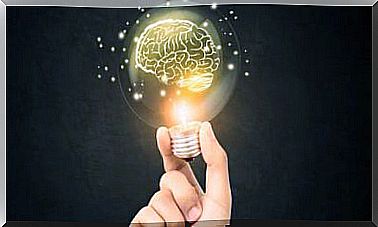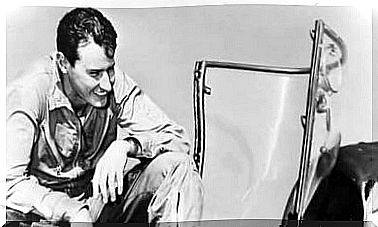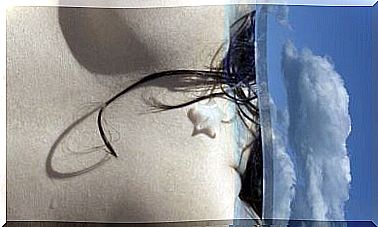Symptoms Of Depression After A Breakup

The ravages of love and lack of love are deep. Symptoms of depression are often overlooked after a breakup. We do not see it, we even normalize suffering, hoping that it will disappear with the days and assuming that “time heals everything.” However, the regret is not resolved and the memory is like that rear-view mirror that we always look back at.
William Shakespeare once said that the wounds that are not seen are the deepest. True, the hardest part of all is that we often immerse ourselves hopelessly in them, infecting them daily with harmful behaviors and thoughts. Of those who, far from turning the page before what can no longer be, we recreate ourselves in the impossible, in a past that no longer has meaning or presence.
Breakup depression is more common than we might think. Thus, something that is often seen is that many people end up leading to a major depression after months. Almost without realizing it, they find themselves unable to perform at work, to enjoy their leisure time and social relationships as before.
It is important to know the symptoms associated with these experiences and, above all, to be able to shape a healthier mourning breakup. We analyze it.
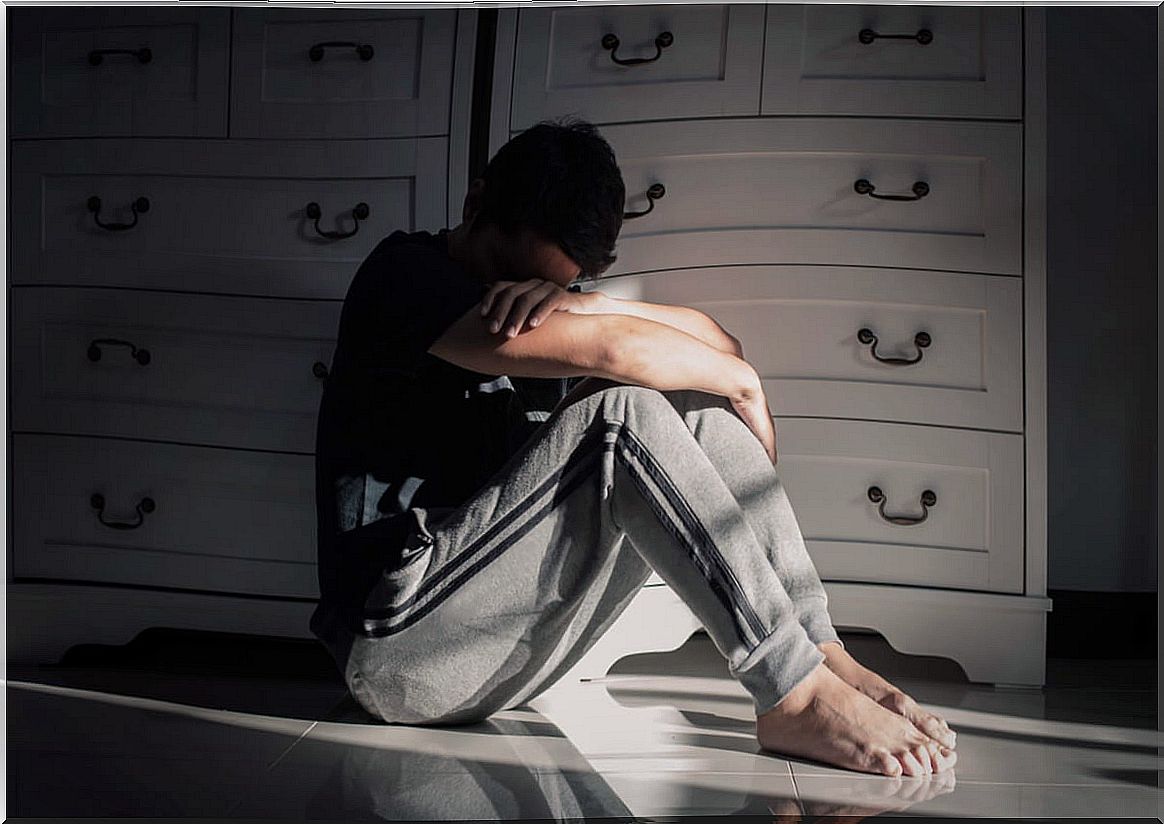
What are the symptoms of depression after a breakup?
No break is easy, not even the one agreed by both parties. It involves having to restart our life in another way, defining present and future. It also involves reformulating ourselves and dealing with many conflicting, confusing and difficult to manage emotions. Memories weigh heavily and as life progresses, our internal world continues to be trapped, stopped and without knowing very well where to start.
It is important to point out one aspect in relation to these situations. Often, we normalize states that we process as normal within the breakup grief itself, when in reality they are pathological. Studies, such as those conducted at the Groningen University Medical Center in the Netherlands, show that many of us do not know how to recognize the symptoms of depression after a breakup.
In general, if a person manages to handle stressful situations after that end of the relationship, they have a lower risk of leading to a psychological disorder. However, those who have less coping skills, those who are carried away by frustration or the need to reconnect with the ex-partner, are at greater risk of developing major depression.
Let’s know, however, the symptoms of depression after a breakup.
Emotional symptoms
In general, each person experiences the end of an emotional relationship in a way. However, when living in a traumatic way or have poor coping skills to deal with these experiences, it is common to experience the following.
- Persistent feelings of sadness and grief.
- To the grief itself, rage and anger can be added, the feeling that things should have gone differently.
- Often, the feeling of guilt is also integrated, the idea that “it’s all my fault, I’ve screwed it up ”.
- Fear and despair at the idea of not seeing that person again.
- Vacuum sensation.
- Feelings of worthlessness.
- Loss of motivation
Cognitive symptoms
Among the symptoms of depression after a breakup there are many states in which the mind does not stop thinking, imagining a thousand situations, remembering moments from yesterday … All of this intensifies the feeling of helplessness.
- Thoughts on how to get the couple back, ways to contact, to see them again …
- The mind does not stop reviewing those things that could have led to the break. We imagined hundreds of possibilities that could have prevented that outcome.
- Likewise, it is common for the person to become obsessed with imagining what the ex-partner will be doing and who he will be with.
- In these states, it is very difficult to focus attention and make decisions. Cognitive performance is reduced, it is difficult to memorize, solve problems …
It is also important to note that suicidal ideas are common in these situations. A highly serious fact that we must consider.
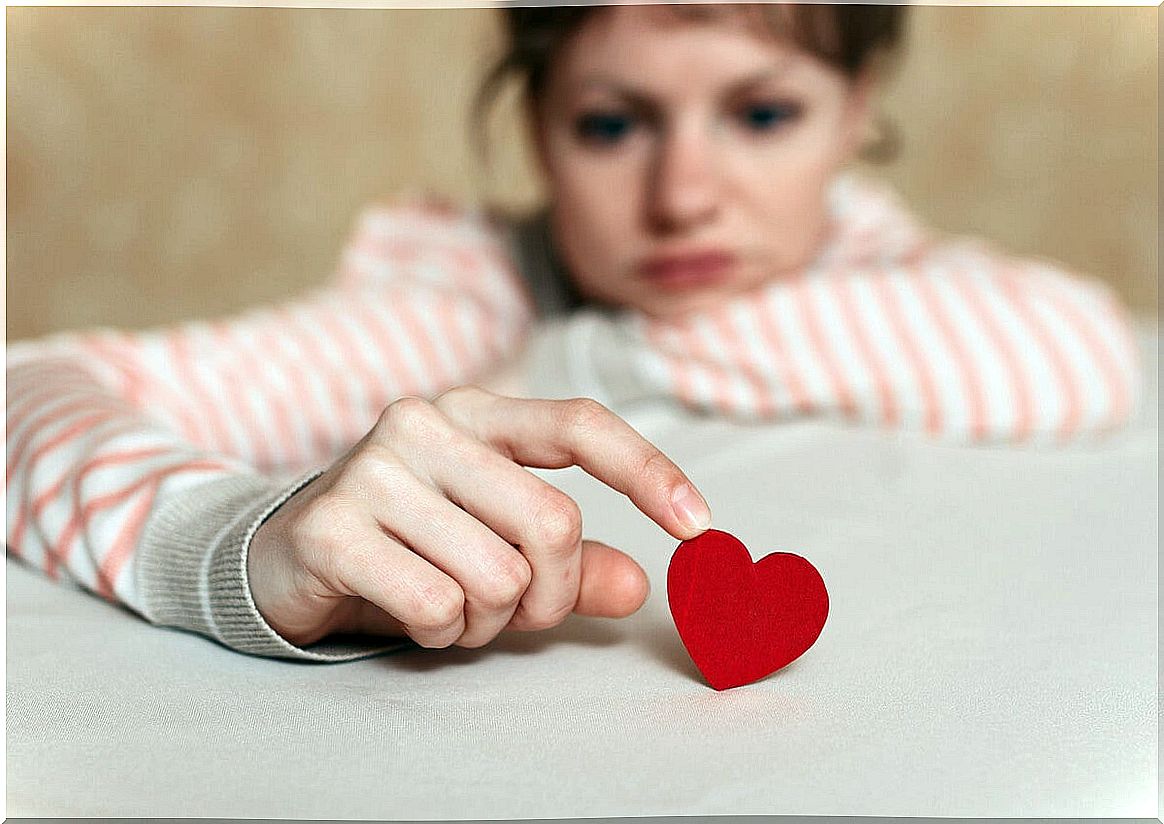
Behaviors associated with symptoms of depression after a breakup
Among the symptoms of depression after a breakup, it is worth highlighting the behavioral ones. Here a great variability opens, but in general we can see the following dynamics:
- There are changes in diet, the person either begins to overeat or loses their appetite.
- Changes in sleep habits are experienced. There are those who begin to suffer insomnia or suffer from hypersomnia.
- Loss of energy appears. The feeling of exhaustion is constant, which makes it impossible to perform in study or work.
- Interest in everything that previously motivated them is lost.
- The person often cannot stop following the ex-partner. This makes him frequently check his social networks and look for ways to contact.
- Often we can see risky or addictive behaviors, such as starting to consume alcohol or drifting into one failed relationship after another in an attempt to forget the ex.
What can we do if we show all these symptoms?
If you notice many of the symptoms of depression after a breakup, it is time to become aware of one aspect. We alone cannot. Investigations such as those carried out at the University of Sherbrooke (Canada) warn that these types of situations maintained over time end up showing a suicidal ideation. And this is a point we cannot get to.
It is important to ask for expert help. Thus, in these situations, the following may be useful:
- Seek help. In addition to adequate psychological support, it is appropriate to have someone to talk to on a day-to-day basis: friends, family.
- We must break contact with the ex completely. And this begins by deleting it from our contacts and social networks.
- Do not avoid the pain, leave space for your emotions and unburden them, accept them.
- Reframe your beliefs and thoughts. Believe it or not ” you can live without that person .”
- Promote changes, place new goals on your horizon.
Sometimes small changes bring new opportunities and bring us different winds, people, activities and projects that excite us again. At the end of the day, that is what it is about when we deal with a depression, to get excited again.
